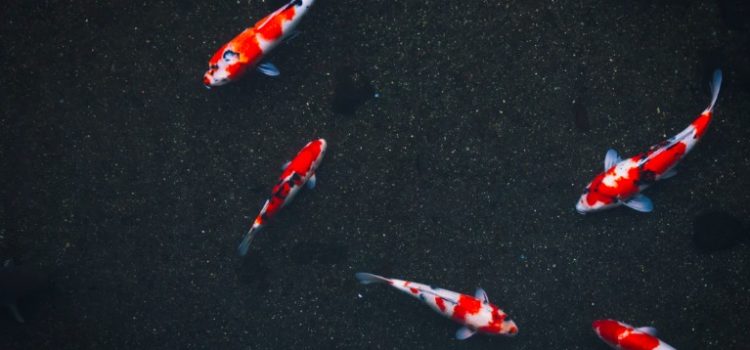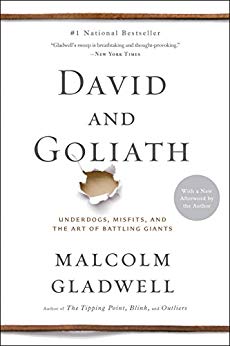

This article is an excerpt from the Shortform summary of "David and Goliath" by Malcolm Gladwell. Shortform has the world's best summaries of books you should be reading.
Like this article? Sign up for a free trial here .
What is the Big-Fish-Little-Pond Effect? And how does it affect me?
The Big-Fish-Little-Pond Effect is the theory that we compare ourselves to the students around us. When you’re a high-achieving student in a low-achieving school (a big fish in a little pond), you’re likely to have more confidence in your intelligence and academic ability than a student with the same IQ in a high-achieving school (a big pond).
Learn why it’s so important to understand the Big-Fish-Little-Pond Effect, especially if you’re a student (or the parent of one!).
The Advantages of Being a Big Fish in a Little Pond
Would you rather be a “Little Fish in a Big Pond” or a “Big Fish in a Little Pond” of your own choosing?
When applying to college, we want to attend the most prestigious university possible (and, therefore, be Little Fish in a Big Pond). Most would agree, when given a choice between two universities, you should choose the “best” one–the one with the most resources, the most accomplished faculty, the smartest students, and the prestige. But what if attending a “better” school could be a disadvantage?
The Big-Fish-Little-Pond Effect and the Relative Deprivation
The theory of relative deprivation says we compare ourselves to the people around us. Our feelings of happiness or deprivation, success or failure, are not absolute, but rather relative to how happy and successful our neighbors are.
In education, we call this the “Big-Fish-Little-Pond Effect.” When assessing their own academic abilities, students don’t compare themselves to every other student in the world. They compare themselves to the students in their class. The more elite the school, the more negatively students perceive their own academic abilities.
For example, students who would be at the top of the class at School B (and would feel pretty good about themselves and their skills) might be in the middle or bottom of the class at the more prestigious School A (and feel bad because they compare themselves to students more skilled than they are).
STEM and the Big-Fish-Little-Pond Effect
Why Does How We View Our Abilities Matter?
According to the Big-Fish-Little-Pond Effect, our perceptions have real-world consequences. Let’s take a look at the drop-out rates at Hartwick College and Harvard to see the Big-Fish-Little-Pond Effect influences graduation rates in STEM fields.
In America, more than 50% of all students majoring in STEM fields (science, technology, engineering, and math) drop out before receiving a degree. The majority of those who drop out are in the middle or bottom third of the class (ranked by SAT scores). This is true regardless of the university.
- Of those with SAT scores in the top third of their class, 45-55% will graduate with a STEM degree
- Of those in the middle third, 22-35% will graduate
- Of those in the bottom third, 11-20% will graduate
The fact that dropout-rate distribution is roughly consistent across colleges is surprising. Let’s say you score 569 (out of 800) on the SAT and you’re offered the choice between attending Hartwick College in upstate New York (Little Pond) and attending Harvard (Big Pond).
- An SAT score of 569 would place you in the top third at Hartwick. Because you’d be in the top third, you’d have a 55% chance of graduating (if you’re basing your chances on statistics from previous years).
- An SAT score of 569 would place you in the bottom third at Harvard. Because you’d be in the bottom third, you’d have a 15.4% chance of graduating.
So, which do you choose? Hartwick or Harvard?
According to the Big-Fish-Little-Pond Effect and the statistics above, you’ll have a far better chance of receiving your degree if you choose to be a Big Fish in a Little Pond and go to Hartwick. Additionally, having a STEM degree is arguably one of the best things you can do for job and financial security. Therefore, choosing Hartwick over Harvard is the statistically smarter choice for increasing job prospects.
How can that be?
It’s all about the Big-Fish-Little-Pond Effect and how we perceive our abilities. When we compare ourselves to our peers at Hartwick, we feel relatively good about our skills. Our confidence increases our chances of success. When we compare ourselves to our peers at Harvard, we feel relatively bad about our skills. We lose confidence in our abilities and think we’re not cut out for a career in the sciences.
If you’re still not sure, think of the story of Caroline Sacks from Malcolm Gladwell’s David and Goliath. Sacks is a student who chose Brown over the University of Maryland. She dropped out of her STEM program when she felt her skills were inferior to her peers’. Gladwell argues that choosing the University of Maryland would have increased Sack’s chances of achieving her childhood dream of becoming a scientist. Unfortunately, because of the Big-Fish-Little-Pond Effect, Sacks doubted her abilities and changed her major.
———End of Preview———

Like what you just read? Read the rest of the world's best summary of "David and Goliath" at Shortform . Learn the book's critical concepts in 20 minutes or less .
Here's what you'll find in our full David and Goliath summary :
- Why being the underdog can actually be an advantage
- Why you shouldn't be afraid of powerful giants
- Strategies to get an edge when you're overpowered






